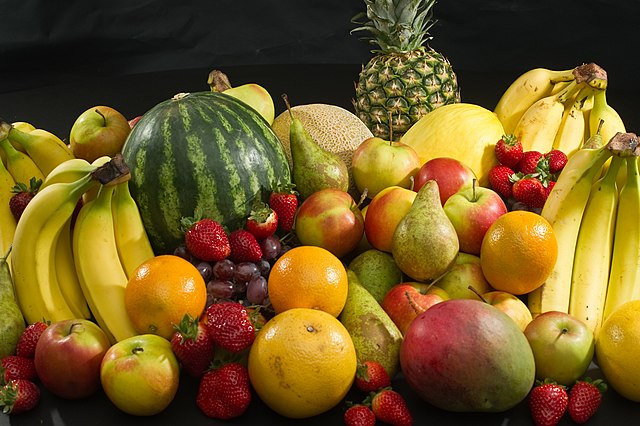You likely consider meat, fish, beans, tofu, yogurt, cheese, almonds, and eggs when you think about protein—the usual suspects. And you’re not mistaken—they rank among the finest foods for consuming protein, a crucial micronutrient that helps to develop muscle mass. But here’s an interesting fact: fruit contains protein.
The FDA advises men to ingest 56 grams of protein per day and women should strive for 46 grams. Yes, you would need to eat a lot of fruit to meet your daily requirements because a cup of fruit typically contains less than six grams of protein. The various vitamins and nutrients that the food group can offer, together with good carbs and fiber, are what makes a diet high in fruit truly beneficial.
Which Fruit Has the Most Protein
Guava. One of the fruits with the highest protein content is guava. Every cup contains a massive 4.2 grams of substance. This tropical fruit is also a good source of fiber and vitamin C.
1.Jackfruit (3 Grams Protein)
The feel of the unripe flesh of jackfruit, a tropical fruit related to figs, is uncannily similar to pulled pork. Three grams of protein are present in one cup. According to the Cleveland Clinic, it also contains numerous nutrients that are good for your health, including three grams of fiber, 110 milligrams of potassium, which is good for your heart, as well as vitamins A and C, magnesium, and calcium, iron, and riboflavin.
2. Guava (4 Grams Protein)
Guava, another delicious fruit from the tropics, has roughly four grams of protein per cup, making it one of the fruits with the highest protein content. If you consume the skin and seeds, which you can and should, the naturally super-sweet fruit also has a lot of fiber and vitamin C.
3. Avocado (3 Grams Protein)
You undoubtedly already know that avocados are a great source of good fats, but did you also know that each cup of avocado provides three grams of protein? In addition, it is abundant in fiber, folate, magnesium, riboflavin, niacin, and vitamins C, E, and K, according to Cedars-Sinai. Additionally, the mix of fiber and fat will keep you full.
4. Apricot (2 Grams Protein)
Two grams of protein are included in one cup of raw (as opposed to dried) apricots. According to WebMD, the stone fruit is also a fantastic source of potassium and vitamins A, C, and E for healthy eyes and skin. Both the flesh and the skin include fiber, which can help with digestion and keep you full.
5. Blackberries (2 Grams Protein)
Unexpectedly, a cup of uncooked blackberries has around two grams of protein (and a whopping eight grams of fiber). Additionally, you’ll find significant concentrations of antioxidants, which combat free radicals, and polyphenols, which support your brain function. Vitamin C intake is also close to 50% of the daily recommended amount.
6. Kiwi (2 Grams Protein)
The kiwi fruit contains about two grams of protein per cup, and if the skin is thoroughly cleaned, you can also benefit from its high fiber content. Along with iron, kiwis are high in vitamin C, potassium, and phosphorus.
7. Cherries (1.6 Grams Protein)
The tastiest treat of summer contains 1.6 grams of protein per cup (pitted, naturally). They are a fantastic source of potassium, which helps control blood pressure and is necessary for optimal muscular function. They also have a lot of anti-inflammatory and antioxidant effects. Melatonin, which can aid in healthy sleep, is also abundant in cherries. (And if they aren’t in season, you can get them frozen to add to smoothies.)
8. Raisins (1 Gram Protein)
One serving of raisins is only one ounce due to their increased sugar content when compared to raw fruit. However, even that tiny amount has a lot of potassium, fiber, and roughly one gram of protein. Additionally, raisins contain a fair quantity of iron, which can aid in the prevention of anemia.
9. Bananas (1.6 Grams Protein)
You’ve probably heard that bananas are rich in potassium and can help with leg cramps. Yet, they also have 1.6 grams of protein per cup. Fiber, prebiotics, vitamins A, B6, and C, magnesium, and prebiotics are all readily available in them. Additionally, those stringy pieces, also known as phloem bundles, should be consumed. They serve as the fruit’s internal “route” for all of its nutrients.
10. Grapefruit (1.3 Grams Protein)
In addition to having fewer than 100 calories, one cup of sunny grapefruit has 1.3 grams of protein. It is loaded with vitamin C, which strengthens the immune system, as well as calcium and iron, both of which help build bones. And according to WebMD, grapefruit’s citric acid may help avoid kidney stones (it binds to excess calcium in the body, which can lead to the painful condition).






